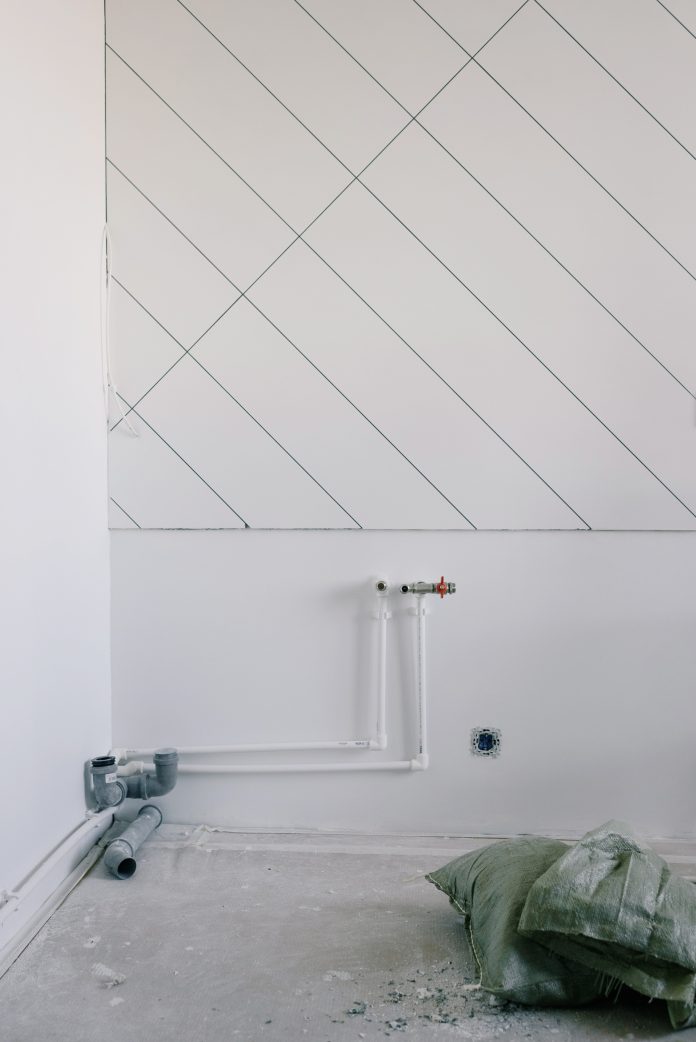Puddles under your boiler or wet pipes underneath it can only mean one thing—your boiler is leaking!
Whether you already knew this or you didn’t, you’re probably looking for the cause of the leakage and wondering whether you can fix it. You’ve found the right guide.
Keep reading to learn how to identify boiler leakage causes and ways you can fix them.
Common Causes Of A Leaking Boiler And Ways To Fix Them
-
Faulty Installation
A faulty installation is most likely the cause if you’ve only recently installed a boiler. It is a common occurrence since it’s difficult for installers to spot leakage right away.
How To Fix It?
A faulty installation is best fixed by a gas-safe engineer.
Fortunately, most installers will check for and fix poor installations by themselves, but you can still call them if you notice a puddle.
-
Corrosion
Corrosion is more likely the cause of leakage in old boiler systems, and it is pretty much unavoidable. It is the most likely cause of the water leaking from the bottom of your boiler. If your system has quite a few years on it, you can easily see signs of corrosion from the outside.
However, you’ll need a professional to confirm whether corrosion is the cause of the leakage.
How To Fix It?
Corrosion isn’t repairable. So you’re looking at some expensive replacements.
A gas-safe engineer can tell you exactly what needs to be replaced. Hopefully, it is a single or a couple of components that are replaceable at a low cost. Otherwise, you may have to replace the boiler itself.
Sometimes, the cost of replacing components in a corroded boiler isn’t economical. This is especially true if the cost of buying a new boiler is around the same price range.
-
High Pressure
A high-pressure setting on the boiler can mean excess water in the system, which needs to be discharged. This results in a simple leakage or a more complex one that causes internal parts to fail too.
How To Fix It?
This problem is rather easily fixed, and you can do it by yourself too!
Simply locate the pressure gauge on your boiler and check if it’s set too high. Then, adjust it to the base range.
In most combination boilers, the base range is around 1 bar or between 18 and 21 PSI. Anything above is too much pressure.
Some pressure gauges come with coloured markings, with green indicating the base range and red indicating too-low or too-high pressures.
If your pressure gauge was adjusted to a high range, then you’ll also need to bleed the excess water from the system. You can do this at home too.
Simply follow these steps:
- Check to see if the taps on your filing loop are firmly closed.
(Filling loops are located underneath your boilers and can have 1-2 taps)
- If the taps aren’t closed, close them by turning the taps clockwise or to the left.
- Get a bleed key and loosen the nut on the end of the radiator.
Doing this should bleed all the excess water out of your system and allow it to function normally.
In some instances, the pressure inside your boiler system can increase due to obstructions within. These obstructions, such as limestone, can get in through the water, and a professional will need to remove them.
-
Faulty Heat Exchanger
A heat exchanger is a component that transfers heat from the source to the fluids in your boiler. It is also the most expensive component in the boiler.
Heat exchanger failures or cracks are common in old boilers, but they can also easily occur in low-quality boilers.
How To Fix It?
While a faulty or broken heat exchanger is a likely cause of boiler leakage, only a qualified engineer can check to confirm.
Furthermore, the only solution to this problem is replacing the heat exchanger. But the cost of it can be so high that most owners will consider buying a new boiler at once.
Just ensure that you get a top-quality boiler.
-
Internal Leakage
Sometimes, leakage on the inside of your boiler can cause leakage on its outside. This typically happens when the seals on your boiler’s joints and components fail or decay.
How To Fix It?
Only a qualified gas engineer can check and fix this issue. They’ll have to take a look inside your boiler first and find the seals that are causing the leak. Once they know what’s faulty, they can replace those parts safely.
-
Loose Joints
Your boiler system is made of many parts that work together. And if one of them comes loose, the flowing water can start leaking out.
Loose joints can happen for a myriad of reasons that are difficult to figure out, but most often, it’s a result of wear and tear. So they’re more common in old boilers.
How To Fix It?
If you’re sure the leakage is due to a loose joint, you can fix it easily.
Start drying the parts around the leaking parts and confirm the water is coming from that joint. Then, try tightening the joint.
If the water stops coming, the loose joint was probably causing it. If the water keeps leaking even after a couple of minutes, something else is the problem.
-
Faulty Temperature Probe/High-Temperature Setting
Leaks that come from the temperature valve are often caused by a faulty temperature probe that results in the water getting too hot and ultimately leaking.
Although, in some cases, you may have set the temperature too high in the first place.
If you’re also getting scalding hot water from your taps, this is likely the issue.
How To Fix It?
You’ll need to replace a faulty temperature probe, so call an engineer for assistance.
However, if your temperature is set too high, you only need to lower it.
Here’s how to do it:
- Locate your thermostatic valve and the adjustment needle on it.
- Push the adjustment needle anticlockwise.
Note: To reduce the temperature by one degree, you must turn the needle at a whole 45-degree angle. Depending on the temperature, you may have to repeat these 45-degree turns multiple times to reduce the temperature significantly.
How To Take Care Of A Leaking Boiler?
As you call the engineer and wait for them to arrive, you can take care of your boiler and the leakage to minimize mess.
Turn off the boiler’s electricity supply to prevent the risk of electric shock.
If you can see the leak’s source, try covering it with a cloth to stop the leaking temporarily. You can also put a bowl or bucket under the boiler to catch water droplets that could create a slippery hazard.
How To Tell If Your Boiler Is Leaking?
A leaking boiler is best identified by puddles of water around it. Another noticeable sign of a leaking boiler is water dripping from any of the boiler’s components.
In odd cases, a leaking boiler can also result in frequent boiler cutouts. This is because when the boiler loses water, the pressure inside the system drops.
Sometimes, a leak may not appear as a water puddle or drip—but as dampness or mould near the boiler.
Takeaway
A leaking boiler means there’s trouble somewhere in your boiler system. And while it isn’t dangerous, not fixing a leaking boiler could pose a risk to your home’s hot water supply. Not to forget the expensive repair/replacement service in case the water does more damage or, worse, renders your boiler irreparable.
We hope this guide helps you check for some basic problems and fix them at home. Make sure to call the engineer at once if you suspect the problem is beyond your control.























